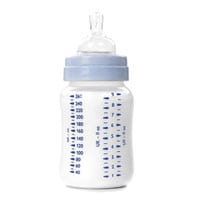As a new mom, whether you’re working or not, you’re going to experience times when you need to be away from your baby – so it makes sense to plan how you’ll keep breastmilk flowing when you’re apart.
Creating and maintaining a supply of frozen breastmilk is foundational and the first step in ensuring that you can breastfeed your baby for up to a year or longer, as recommended by the American Academy of Pediatrics. What moms really want to know is what strategies work for pumping, storing and keeping a good milk supply while juggling a busy schedule. Here’s how moms we know make breastfeeding work for them.
Establish good breastfeeding
Experts agree that establishing good breastfeeding habits and milk supply from the beginning is truly the key to successful pumping and bottle feeding later on.
- For the first 4-6 weeks breastfeed your baby exclusively and on demand. While it’s tempting to start pumping early so dad can give a bottle during the night, nothing empties the breast as well as your baby, and effective nursing is integral to developing an ample supply
- Buy or rent a good breast pump. Not all pumps work well on all breasts. Get recommendations from your friends or other mothers at postpartum support groups. Ask if you can borrow their pumps and see which ones work best for you
- Consider how portable you need your pump to be – if you’re out on the road all day, for example, using and cleaning a hand-pump may work well
Plan your pumping
- Ask your employer if there’s a breastfeeding room for you to use and if there’s a pump available. If there’s no designated room, ask what private space will be available for you. Don’t be surprised if you’re the first person to ask for this – be an advocate for other moms at your work
- Turn your car into a pumping room with a portable refrigerator or cooler that plugs into a power outlet
- Determine how you’ll store your pumped milk until you’re back at home – whether in a cooler you bring or in a refrigerator available to you
Put your boobs on a schedule
- This is essential to successful pumping and feeding. Determine the best times each day for you to pump and stick to that schedule as closely as possible. Your body is remarkably smart and will adjust to the schedule you set for it. Start this two weeks before returning to work and stick to it even on your days off
- Put your pumping schedule into your work and social calendar so that you won’t get scheduled into meetings or events during this time
- While you’re pumping remember that this is one way you’re staying connected to your baby even when you’re apart – relax and enjoy – it’s only for a year or so and it’s the healthiest thing you can do for yourself and for your baby






Comments are closed.